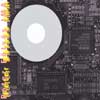Eötvös IMA
Committed performances of modern music that repays investigation
View record and artist detailsRecord and Artist Details
Composer or Director: Peter Eötvös
Genre:
Chamber
Label: BMC
Magazine Review Date: 6/2004
Media Format: CD or Download
Media Runtime: 59
Mastering:
Stereo
DDD
Catalogue Number: BMCCD085

Tracks:
| Composition | Artist Credit |
|---|---|
| IMA |
Peter Eötvös, Composer
Cologne Radio Chorus Cologne Symphony Orchestra Peter Eötvös, Composer Sylvain Cambreling, Conductor |
| Cosmos |
Peter Eötvös, Composer
Andreas Grau, Piano Götz Schumacher, Piano Peter Eötvös, Composer |
| Correspondence |
Peter Eötvös, Composer
Pellegrini Quartet Peter Eötvös, Composer |
Author: kYlzrO1BaC7A
A further release of music by Peter Eötvös from the Budapest Music Center, demonstrating his breadth of composing across a range of media. Completed in 2002, IMA is an indirect sequel to Atlantis from 1995 – a meditation on rituals past and, by implication, future. Drawing on the syllabic chant of Gerhard Rühm’s poem Gebet and on lines from Sándor Weöres’s Silent Music, which retells the Creation myth in an invented language which Eötvös memorably describes as ‘Polynesian…with some Latin influence’, this is a substantial work where stark choral writing emerges from translucent orchestral textures. A sense of past catastrophe, made passive by time but kept alive through memory, haunts the music – which impresses through the constantly changing timbres that Eötvös draws upon to offset a relative uniformity of mood and pace over the 26-minute span.
Cosmos takes us back almost to the start of Eötvös’s career. Inspired by Yuri Gagarin’s orbiting of Earth in 1961, it falls into three main sections relating the evolution of the cosmos in the wake of the Big Bang. Heard in the 1999 version for two pianos, the influence of Bartók pervades the music productively: whether in the frequent whole-tone passages, or the unobtrusive quotations from Out of Doors that emerge at the two main formal junctures to provide a human perspective on the extra-terrestrial imaginings. In total contrast is Correspondence (1993) – depicting, through string quartet, the fraught relations between Mozart father and son during 1778. Extracts from their letters supply a context which the music transforms in wholly abstract terms: the question of whether Paris is preferable to Salzburg as a ‘career base’; the fickle nature of Parisian musical life; finally, the revelation that Wolfgang’s mother/ Leopold’s wife is near to death. Like the earlier Chinese Opera (Kairos, 10/00), this is inventive music-theatre of a kind that Eötvös has made strikingly his own.
There are committed performances from musicians expert in new music – not least the Pellegrini Quartet, who would be welcome visitors to the UK one day. The recorded sound is vivid if slightly harsh, and brief notes from the composer give the salient background. Those attracted to Eötvös through such works as Replica (ECM, 7/00) or zeroPoints (BMC, 9/02) will find that this issue amply repays investigation.
Cosmos takes us back almost to the start of Eötvös’s career. Inspired by Yuri Gagarin’s orbiting of Earth in 1961, it falls into three main sections relating the evolution of the cosmos in the wake of the Big Bang. Heard in the 1999 version for two pianos, the influence of Bartók pervades the music productively: whether in the frequent whole-tone passages, or the unobtrusive quotations from Out of Doors that emerge at the two main formal junctures to provide a human perspective on the extra-terrestrial imaginings. In total contrast is Correspondence (1993) – depicting, through string quartet, the fraught relations between Mozart father and son during 1778. Extracts from their letters supply a context which the music transforms in wholly abstract terms: the question of whether Paris is preferable to Salzburg as a ‘career base’; the fickle nature of Parisian musical life; finally, the revelation that Wolfgang’s mother/ Leopold’s wife is near to death. Like the earlier Chinese Opera (Kairos, 10/00), this is inventive music-theatre of a kind that Eötvös has made strikingly his own.
There are committed performances from musicians expert in new music – not least the Pellegrini Quartet, who would be welcome visitors to the UK one day. The recorded sound is vivid if slightly harsh, and brief notes from the composer give the salient background. Those attracted to Eötvös through such works as Replica (ECM, 7/00) or zeroPoints (BMC, 9/02) will find that this issue amply repays investigation.
Discover the world's largest classical music catalogue with Presto Music.

Gramophone Digital Club
- Digital Edition
- Digital Archive
- Reviews Database
- Full website access
From £8.75 / month
Subscribe
Gramophone Full Club
- Print Edition
- Digital Edition
- Digital Archive
- Reviews Database
- Full website access
From £11.00 / month
Subscribe
If you are a library, university or other organisation that would be interested in an institutional subscription to Gramophone please click here for further information.




